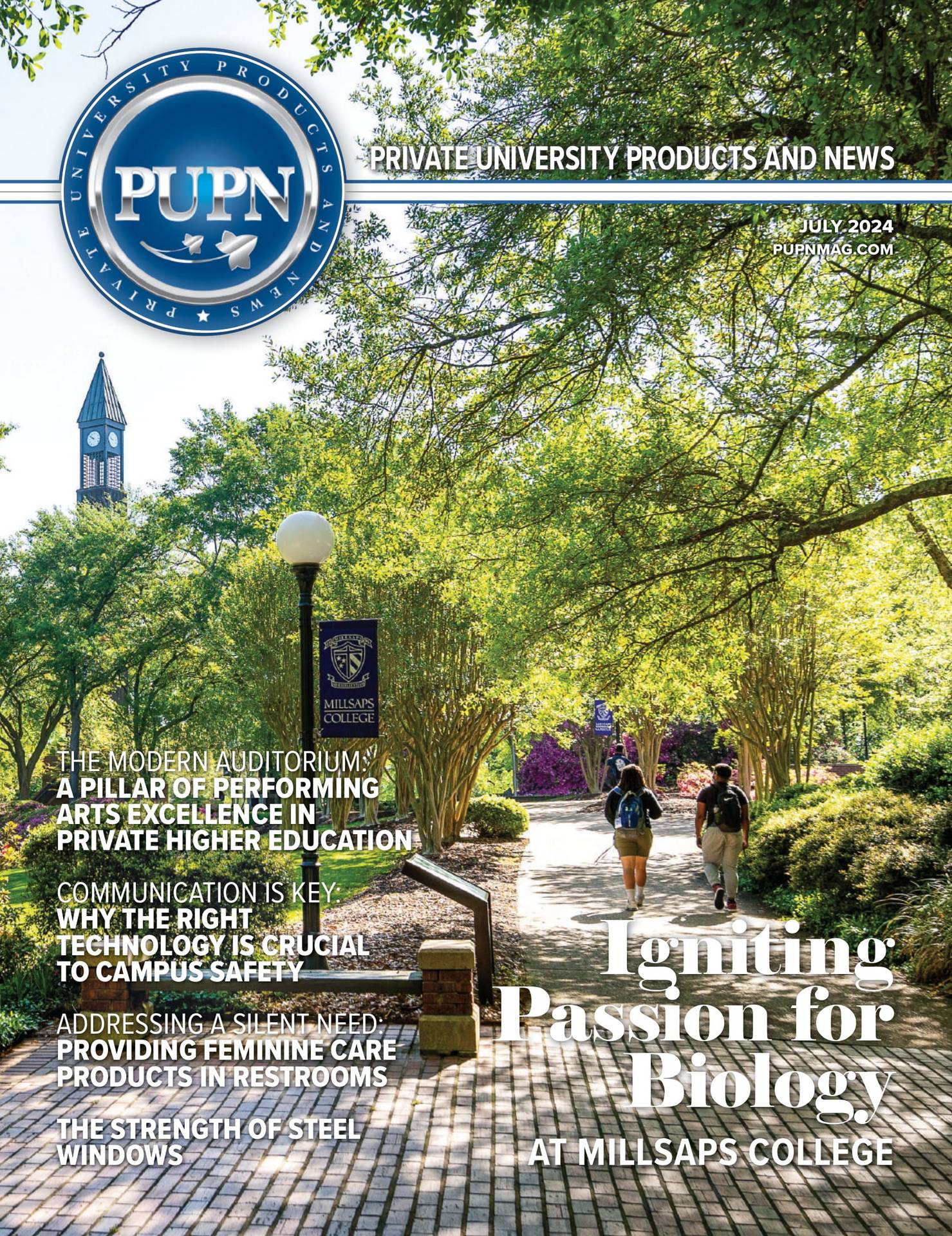Political Science and Environmental Concerns
Prior to graduate school, Gunter was already looking for synergies between climate change and politics. He crafted a program in his graduate studies so that he could work within both disciplines. He added a certificate in environmental systems to his degree in political science to connect these personal interests. He felt environmental studies and political science had a natural synergy—both fields are interdisciplinary, and Gunter enjoys “moving between different groups of experts and helping them talk to each other.”
Meanwhile, Tom Lairson—currently professor of Political Science at Jindal Global University and professor emeritus of Political Science at Rollins College—had secured a grant to create a sustainable development program, and the campus needed someone to bolster it. Gunter applied, and he “was a natural choice” due to his interests in environmental concerns, says Lairson. During their tenure together at Rollins, the two had offices next to each another, and they bonded over University of Kentucky basketball—both had graduated from that university, albeit years apart.
Maurice (Socky) O’Sullivan, Kenneth Curry Professor of Literature Emeritus at Rollins,notes that Gunter “was impressive from the beginning,” combining excellent teaching, commitment to service, and an admirable research agenda. O’Sullivan points out that keeping a consistent focus on one’s own scholarship can be a challenge when teaching a full load; doing so takes the consistent commitment that Gunter has displayed. On one occasion, O’Sullivan and Gunter worked together on a grant-funded program about Florida’s Golden Age between 1880-1930. They invited people from around the state, and O’Sullivan still remembers Gunter’s presentation.
“(Gunter showed he) has substance to share both a breadth and depth of knowledge,” he says.
NCAA Faculty Liaison
Taking on a role outside of his main interests in climate and politics, Gunter began serving as the NCAA faculty liaison for Rollins two years ago. In this position, Gunter is involved in supporting the academic success as well as the health and wellness of the student athletes. A self-professed “competition junky,” Gunter states that he dabbles in sports. Gunter may be downplaying his abilities; Lairson notes that Gunter is a valuable player on the faculty basketball team.
Gunter enjoys serving as the connecting point between athletics and academics and sees himself as a coach for the students outside of their sports. He supports the athletes by attending sports events as well, says Micki Meyer, Lord Family Assistant Vice President of Student Affairs for Engagement and Dean of Rollins Gateway in the Division of Student Affairs.
Gunter says he was attracted to being a professor because of the ability to move fluidly among different types of responsibilities, and this role is no different. As an advisor and role model for the student athletes, Gunter helps them see how the lessons from their academics and sports apply to academics and other areas.
A Message that Transcends Politics
Gunter’s two most recent books examine the ways that everyday people can be spurred to engage in climate action through participating in ecotourism. His 2023 Climate Travels: How Ecotourism Changes Mindsets and Motivates Action, from Columbia University Press, is a domestic follow-up to his 2017 Tales of an Ecotourist: What Travels to Wild Places and Teach Us about Climate Change. In Tales of an Ecotourist, Gunter draws on his own experiential learning as a Fulbright scholar working on seven continents to explore essential misunderstandings about climate change.
Climate Travels focuses on core climate threats in the United States and offers potential solutions. Throughout the book, Gunter argues that people’s direct experience matters—that “ecotourism can be the medium by which we grow support” for decisive climate action. As he has promoted the book at various events, Gunter has appreciated the fun in “getting outside the ivory tower” to interact with different groups; he has also been glad to be able to reach the general public with his work. Lairson appreciates the broad audience that Gunter has connected with—he’s not just helping the environment, but also “helping the average person understand why they need to be thinking about these issues and why they need to act.”
Gunter is now working on a project titled Searching for Sustainability in the Sunshine State, which explores the ways that Florida both serves as a model and falls short on climate action. Since Florida is an attractive destination for vacationers, he notes, many people are familiar with its various locales. Gunter sees alignment in his work with popular travel personalities from Mark Twain to Rick Steves, and he says he draws on the power of travel in similar ways: using high-profile destinations as springboards for connecting with his audience.
Gunter keenly appreciates the way that environmental tourist destinations such as America’s national parks transcend political identity. He points out that there are many “reasons to be concerned, regardless of political persuasion” and sees ecotourism as “a venue in which we can break through political polarization.” He has a vision for improving civil society by emphasizing what we do have in common. So far Gunter’s message has resonated with a wide audience, and he has been invited to give book talks around the country. This sort of interest and exposure, Lairson says, is “uncommon for an academic writer” and shows how distinctive his message is.
O’Sullivan takes it a step further. He says people also respond to Gunter’s message for because he takes the daunting subject of the environment and “makes it fun.” In many cases, book events have had to be moved from the local bookstores to nearby auditoriums because the interest in attending was so high; Lairson attributes this demand for Gunter’s message to his skills in talking to people in ways they can understand, bringing them to consider his point of view.
Gunter’s audience extends well beyond his public appearances, says Alison Reeves of the History and Political Science Department: “His writings have been featured in Inside Higher Ed, and he’s a commentator on NPR, The Washington Post, and USA Today,” she says, “making him a voice in the broader conversation on environmental issues and sustainable practices.”
Model United Nations
In another form of experiential learning, Gunter teaches a Model United Nations course each fall. In the model United Nations format, students take the persona of a nation and interact as that nation during the event. During the fall 2023 trip, the students were able to tour Washington, D.C., the U.S. Capitol, and the Library of Congress—though their time during the actual event had a tightly packed schedule from early in the day to late at night. Members of the Rollins delegation represented the Dominican Republic as they participated in the Human Rights Council, the Environmental Assembly, and Arms Control.
This experience allows students to apply the lessons they have learned throughout the class. While one or two students on the team participated in Model U.N. in high school, most are new to the concept, Gunter states. He notes that the majority of colleges have some sort of Model U.N. program, and they are lucky to have it funded at Rollins; the students only pay a small fee for administrative costs.
Benjamin Mack-Jackson, a senior International Relations major at Rollins, was part of the Fall 2022 Model U.N. class which traveled to New York for its competition. He appreciates the experiential learning embedded in the class; it helped him understand his role in the world. Mack-Jackson says that Gunter has been an “incredible professor and leader” whose classes are special. “They bridge the gap between theory and practice,” he says. Mack-Jackson has taken classes from Gunter throughout his time at Rollins, and he appreciates Gunter’s support beyond the classroom. Mack-Jackson—now a freelance reporter and accredited journalist with the Ukrainian government—presented a museum exhibition documenting the war in Ukraine, and Gunter made it a point to visit the exhibition. This instance is just one example of Gunter’s “unwavering support” for his students, Mack-Jackson says.
Working with the United Nations’ Sustainable Development Goals
Meyer appreciates that Gunter has spent his career focusing on finding pragmatic applications of the liberal-arts experience. He is most focused on getting students immediately engaged with important issues, particularly by using political science and environmental concerns to spur interest in taking action on climate issues. Toward that end, Gunter and Meyer have been working through Rollins’ Social Impact Hub to develop ways to “fuse the United Nations’ Sustainable Development Goals into curricula across campus at Rollins.” According to its website, the Social Impact Hub “is a co-curricular department on campus that focuses on approaching societal inequities and environmental challenges with innovation to develop creative and sustainable solutions. The Hub’s space is available for students and faculty to gather and innovate for social change.” The United Nations has 17 sustainable development goals, ranging from “no poverty” and “zero hunger” to “sustainable cities and communities” and “climate action.” Meyer says that students from all majors are interested in Gunter’s unique combination of political science and climate action. Their work with the Social Impact Hub is a great example of how Gunter helps students to “understand global challenges from multidisciplinary perspectives.”
Gunter’s work puts the liberal arts into meaningful action, serving as a model for faculty engagement with vital and pressing issues. His example of showing people that they have common cause, then motivating them through experiential learning to act, provides an inspiring blueprint for faculty members in all disciplines.










